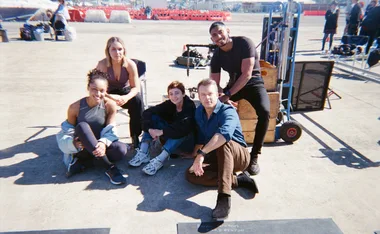If you think you’re working at full capacity and still not getting everything done, take time to reassess your work habits. A few simple steps will soon have you leaving on time with a clear head and sense of achievement. The secret? Work smarter, not harder.
1. Make a list
“The humble to-do list often gets overlooked,” says Sophie Gill, member of the Australasian Association of Professional Organisers and founder of professional organising service Little Miss Sorted. “Or it becomes a guilt-ridden ‘What I still haven’t done’ list.” Sophie suggests the following:
Break things down into manageable chunks. Don’t just write “Organise monthly meeting”. Be more specific with “Book meeting room”, “Confirm catering”, etc.
Don’t expect to cross everything off in one day. Focus on a realistic number of items.
If it takes as long to write something down as it does to do it, just do it.
2. Cut out distractions
Time-saving technology is a godsend, but a text message here, an e-mail there and a bit of Internet in between can soon swallow half a morning. The answer is to allocate a time for everything.
“Check e-mails only twice a day,” Sophie says. “And don’t leave the program running in the background.” If something’s urgent, make an old-fashioned phone call.
Are you tempted to chat with your mates online? “This is one of the biggest time wasters around,” Sophie says. “If you really must, do it in your lunch break.” Put your mobile on silent and only check it twice a day. If your work phone is a constant interruption, use your voicemail. Don’t feel obliged to answer every time it rings.
3. Get organised
Take time to sort out your work space, your diary and your personal work rhythms.
“Create a system for dealing with paperwork and you’ll save yourself time and stress when you can lay your hands on a document in seconds,” Sophie says.
Condense your diaries into one. “Don’t waste time checking an e-mail diary, a pocket diary, a wall calendar and an electronic organiser,” Sophie says.
Set yourself deadlines. If you allocate an hour for a task, it’s likely to take an hour. If you allocate two, it will take two. It works on the same principle as “You’ll always spend what you earn”.
4. Take (in)action
Procrastination is a huge time waster. Instead of sitting around talking about something, do something.
“If that means you have to delegate, so be it,” Sophie says. “Delegating can free up time for more important tasks, so don’t be afraid to do it.”
E-mail inboxes soon fill up. Help prevent this by sending and replying less — do you really need to e-mail someone to say “Thanks for your e-mail”? And deal with messages immediately, whether you forward them, file them or delete them.
Women are notoriously bad at saying no, but a few well-placed negatives can leave you free to get on with your own work.
5. Be honest with yourself
If you know you work better at certain times of the day — for most people that’s between the hours of 8am and 12pm — don’t leave the most important things on your to-do list until last. Tackle them first thing and you’ll achieve more than ever before.
And finally, if you complain you have too much to do, but you arrive late then spend an hour gossiping with colleagues, it’s probably you who’s making you stay late and feel stressed. Set your alarm clock earlier, save the chit-chat for after work and you’ll soon be Little Miss Sorted.
Your say: Are you an organised person? What tips do you have for spending time more efficiently? Share with us below…
Newsletter conversion description. Get the latest in your inbox.






.png?resize=380%2C285)
.jpg?resize=380%2C285)

















































